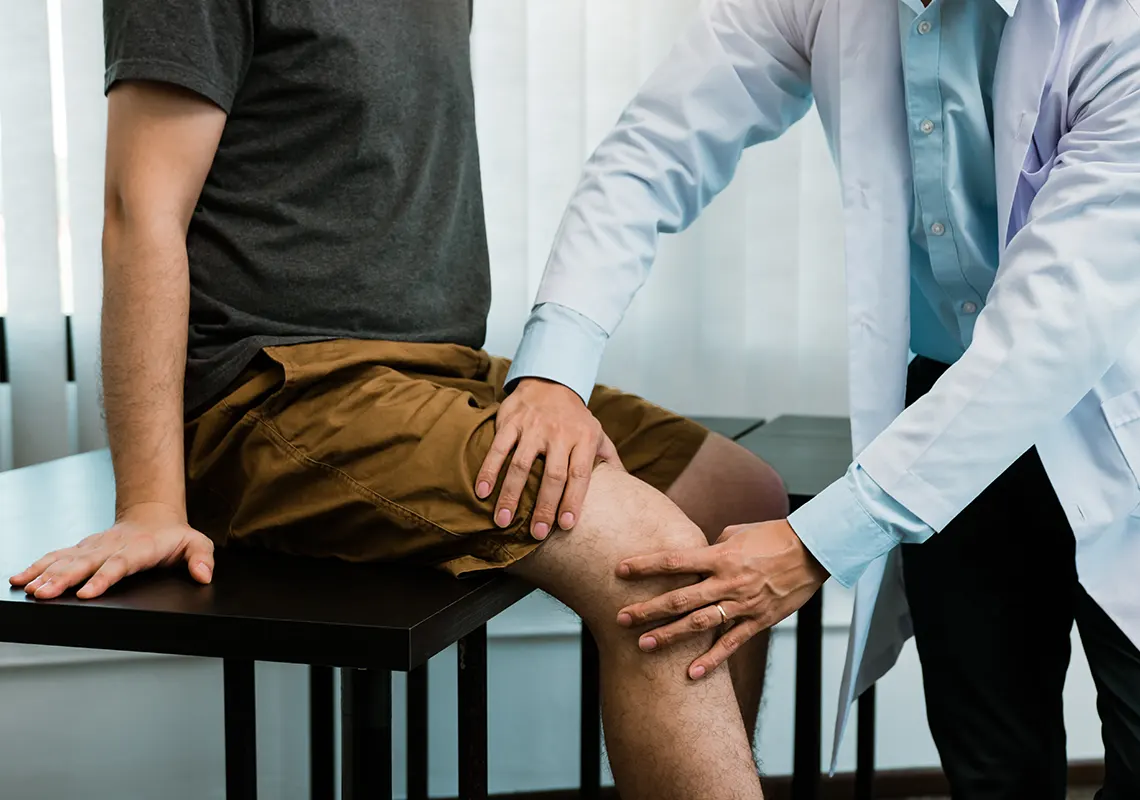The most common question surrounding the orthopedic field around here is the cost effectiveness of a replacement surgery. Around 3% of Indian population (3.9 crore ) is affected by Osteoarthritis. 75% of women over the age of 60 are currently affected and are forecasted to reach a huge number of 6 crore by 2025. In 2013, total medical costs and earnings losses due to arthritis were about 1 percent of the gross domestic product of that country for that year. Arthritis is directly proportional to replacement surgeries. Having set the context let’s know more about ‘replacement surgeries’.
Unilateral /Bilateral, Unicondylar / Total Knee Replacement Surgeries
When the surgery involves both knees together it is called bilateral. If only single knee is treated it is commonly known as unilateral knee replacement. When one of the condyle alone is replaced , it’s called unicondylar , partial or half knee replacement.
Surgery versus Medication Management
Various studies have reported greater improvements post replacement surgeries than with person on non-surgical treatment. Not to rule out the adverse effects cased due to prolonged consumption of NSAIDs and Steroids. Tremendously expensive Pain care supplements have also captured the osteoarthritic market with results extremely questionable.
The main disadvantages of prolonged medication management are:
- Liver and Kidney complications
- The dosage needs to be increased regularly as it causes tolerance
- NSAIDs can increase your chances of having a heart attack or stroke. They are tough on stomach and may result in stomach bleed
- Prolong use of Corticosteroids may produce needless side effects of eyes like glaucoma (increased pressure in the eye) and cataract (clouding of the lens of the eye). This non ending list includes
- Fluid Retention In Body
- Mood And Behavior Variations,
- Higher Blood Fat And Blood Sugar Levels,
- Increased Appetite,
- Thinning Of Bones and Skin
And all of this for no positive long term remedy because the disease is at a stage where bone damage extent is so much that prescription can’t really help.
Why Knee Replacement?
- Ambulation the same day mainly through walker
- 4-5 more days of hospital stay
- 2-3 months of regular rehabilitation which includes:
- Knee strengthening exercises
- Range of motion regain
- Independent walking with help of an assistive device
In most cases complete occupational and personal activities are achieved by 6 weeks. After successful surgery & physiotherapy the patient is free from regular medication and they can lead a normal life without help of caregivers or assistance.
Cost effectiveness of knee replacement from:
- Societal Perspective
- Individual Perspective
- Free from disability
- Improved Quality of Life
- No Dependency on anyone for day to day life
- Complete Independence
- Drug Availability to medically manageable candidates
- Free from unnecessary medications : NSAIDS, Steroids and Supplements
- Decreased morbidity
- Free from unnecessary and delayed side effects of above medications like organ damage (kidney, ear etc.)
- Social presence and Acknowledgement
- Free from loneliness and depressive anxiety
- Less extra Job Safety requirements
- Confident Professional Presence
- More Productive Life
- Freedom from Absenteeism
Medically manageable candidates are those with acute osteoarthritis which can be totally treated with the help of medicines and physiotherapy. In a scenario like now when Government run Health schemes are rushing, the benefit can actually reach those who deserve it.
The Final Selection
Choosing a facility is the most imperative decision of the process. Studies suggest that finding appropriate hospital and surgeon increase the likelihood of a successful surgery without any chances of complications. There should be a well-developed and effective pain management protocols in place and plan of prehabilitation and post-surgery rehabilitation in place by the provider which later adds on to your ‘good decision report card’.
Before the assortment conclusion we should know that:
- Right hospital with state of the art equipments like computer navigation / robotics and operation theatre along with experienced orthopedic team is must for successful knee replacement. Experienced anaesthesia and other super specialists to manage comorbidities like diabetes, heart, kidney and lung disorders is must for safe and successful outcomes.
- Getting a second opinion is always informative
- Experience of the hospital and surgeon in terms of number of successful surgeries always counts.
- Always check hospital figures for
- Surgical infection details
- Patient Readmission details
- Deaths during Surgery
Let’s look forward in making the best possible choice for ourselves.



